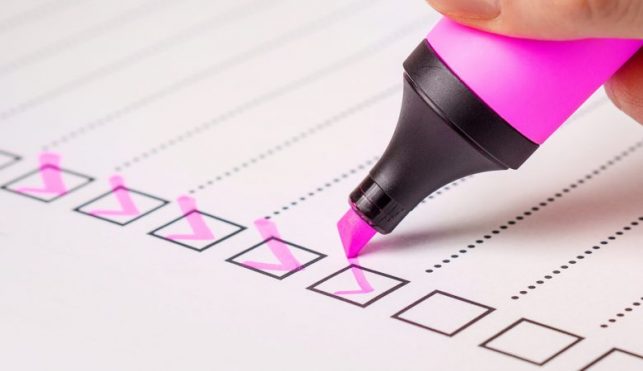
Hiring the right talent is crucial for any Australian Business. A strong team can propel your business forward, while a bad hire can cost you time, money, and affect team morale. Acing the interview process is central to finding the perfect candidate. And crafting the right interview questions is an essential skill.
This comprehensive guide to mastering interview questions for employers will equip you with the tools to streamline your hiring process. We'll cover crafting targeted questions, evaluating responses and avoiding common pitfalls so you can identify top talent and conduct successful interviews.
The importance of thoughtful interview questions
A job interview is a pivotal moment when the hiring manager assesses a candidate's suitability for their organisation. Well-constructed employer interview questions uncover candidates' qualifications and shed light on their problem-solving, communication, and cultural alignment skills. It’s important to get it right for several reasons.
Uncover skills and experience: Well-designed questions help hiring managers assess the experience and qualifications of a prospective employee against the specific requirements of the role.
Evaluate cultural fit: Beyond technical skills, a good hire must fit your company's culture. The right questions can reveal a candidate's personality, work style and values to see if they align with your team.
Identify red flags: Certain questions can expose potential red flags, such as a lack of relevant experience, unrealistic salary expectations or a history of short job stints.
Gauge enthusiasm and communication: The job interview is a two-way street. Strong questions allow hiring managers to assess a candidate's level of interest in the role and the company, as well as their communication skills.
Common interview question types and examples
A well-rounded interview question bank should encompass a variety of categories to assess a candidate's suitability for the role comprehensively. Here are some key categories, examples of job interview questions and what to look for in answers for each.
Traditional questions.
Situational questions.
Communication and teamwork questions.
Motivation and work ethic questions.
Company culture fit questions.
1. Traditional questions
These standard job interview questions provide a foundational understanding of a candidate's background, skills, experience, and career aspirations. While essential, they may not always unveil the full spectrum of a candidate's potential.
Traditional interview question examples:
Question 1: "Tell me about a time you had to use [relevant skill] to achieve a positive outcome."
This is a classic behavioural interview question. A candidate's answer reveals the practical application of a skill in their current job.
Answer: What to look for
Specific example: Did they provide a clear and detailed example of a situation where they used the skill?
Action taken: How did they approach the situation and utilise the skill?
Problem-solving: Did they demonstrate a logical thought process when using the skill to overcome a challenge?
Positive outcome: Did their use of the skill lead to a successful resolution?
Question 2: "Can you walk me through your experience with [relevant software/tool]?"
This assesses a candidate's technical proficiency with a specific software or tool crucial for the role.
Answer: What to look for
Depth of knowledge: Can they describe the software's functionalities and features in detail?
Practical experience: Have they used the software in a work environment before? Can they showcase their experience level?
Comfort level: Are they comfortable discussing the software and demonstrating their understanding?
Question 3: "Describe a situation where you had to overcome a technical challenge."
This assesses a candidate's skills overcoming a challenge with a specific software or tool they will be using in the role.
Answer: What to look for
Challenge identification: Did they clearly describe the technical challenge they faced?
Troubleshooting steps: Can they articulate their steps to troubleshoot and resolve the issue?
Resourcefulness: Did they demonstrate resourcefulness in finding solutions or seeking help when needed?
Learning outcome: Did they learn anything from the experience and apply that knowledge in the future?
2. Situational questions
These hypothetical scenarios evaluate a candidate's problem-solving acumen, decision-making and ability to navigate challenges. Situational questions often begin with prompts such as "How would you handle..." or "What steps would you take if...".
Situational interview question examples
Question 1: "How would you approach a situation where [describe a hypothetical scenario related to the role]?"
This question unveils a candidate's thought process, problem-solving skills and understanding of the role's real-world challenges.
Answer: What to look for
Structured approach: Does the candidate outline a clear and logical plan for tackling the situation?
Critical thinking: Do they consider various factors and potential solutions before taking a course of action?
Role-specific knowledge: Does their approach demonstrate an awareness of the specific demands and considerations relevant to the role they're applying for?
Adaptability: Can they adjust their plan based on unforeseen circumstances or new information?
Question 2: "Tell me about a time you had to make a difficult decision under pressure. What was your process, and what was the outcome?"
This question delves into a candidate's ability to handle pressure, make sound choices under time constraints, and learn from experiences.
Answer: What to look for
Pressure situation: Can the candidate clearly describe a scenario where they felt compelled to make a quick decision?
Decision-making process: Do they articulate the steps to gather information, weigh options and reach a conclusion?
Problem-solving skills: Did they demonstrate critical thinking and logic when making decisions?
Learning and adaptability: Did they reflect on the outcome and glean valuable lessons from the experience?
Question 3: "Can you describe a complex problem you solved and the steps you took to resolve it?"
This question assesses a candidate's analytical skills, problem-solving approach, and capacity to navigate intricate situations.
Answer: What to look for
Complexity of the problem: Did they identify a challenge they faced in a previous role?
Analytical approach: Can they detail a structured way of breaking down the problem and identifying its root cause?
Solution-oriented mindset: Do they outline the specific steps to troubleshoot and resolve the issue?
Communication and initiative: Were they able to effectively communicate the problem and take the initiative to find a solution?
3. Communication and teamwork questions
Effective communication and teamwork are crucial for success in the workplace. Questions in this category aim to evaluate a candidate's communication style, ability to collaborate with others and capacity to explain complex concepts clearly.
Communication and teamwork examples:
Question 1: "How would you explain a complex technical concept to someone with no prior experience?"
This question assesses a candidate's communication skills, management style, ability to simplify complex ideas and patience in explaining concepts to others.
Answer: What to look for
Clarity and concise: Can they break down the concept into simpler terms and avoid technical or industry jargon?
Adaptability: Can they tailor their explanation to the audience's level of understanding?
Teaching skills: Do they use examples, analogies or visuals to enhance understanding?
Patience and empathy: Can they patiently address questions and ensure the explanation lands effectively?
Question 2: "Tell me about a time you collaborated with a team to achieve a common goal."
This question reveals a candidate's ability to collaborate effectively, contribute to a team effort and navigate group dynamics in a new position.
Answer: What to look for
Teamwork skills: Can they describe a situation where they actively participated in a team project?
Contribution to goals: Did they clearly explain their specific role and how it contributed to the overall success?
Communication and collaboration: Did they demonstrate effective communication and collaboration skills within the team?
Conflict resolution: Did they encounter any challenges or disagreements within the team? How did they handle them?
Question 3: "How do you handle disagreements with colleagues?"
This question explores a candidate's conflict resolution skills, professionalism, and ability to work constructively with others.
Answer: What to look for
Professional approach: Do they maintain a professional and respectful demeanour when faced with disagreements?
Problem-solving mindset: Can they articulate a constructive approach to resolving disagreements?
Active listening: Do they emphasise listening to understand the other person's perspective?
Finding common ground: Can they describe how they work towards finding solutions that benefit everyone involved?
4. Motivation and work ethic questions
Understanding a candidate's level of motivation and work ethic is vital for a hiring manager. These questions explore their enthusiasm for the role, commitment to achieving goals and overall approach to work.
Motivation and work ethic question examples:
Question 1: "What excites you most about this opportunity?"
This question reveals a candidate's enthusiasm for the role, understanding of the company, and overall fit within your organisation.
Answer: What to look for
Genuine interest: Does the candidate express genuine excitement about the specific aspects of the role and the company?
Company knowledge: Do they demonstrate an understanding of your company culture, values, and mission?
Alignment with goals: Can they articulate how their skills and experience align with the opportunity you offer?
Long-term vision: Do they see this role as a stepping stone in their career path, or are they seeking a long-term fit?
Question 2: "Tell me about a time you went above and beyond to achieve something/help someone.”
This question explores a candidate's initiative, work ethic and commitment to exceeding expectations.
Answer: What to look for
Proactive approach: Did the candidate identify an opportunity to exceed their core responsibilities?
Problem-solving and initiative: Did they demonstrate resourcefulness and initiative in taking action?
Impact and outcome: Did their actions positively impact the situation or the company?
Motivation and dedication: What motivated them to go the extra mile, and does it align with your company culture?
Question 3: “Describe your ideal work environment and how this role aligns with that."
Understanding a candidate's ideal work environment helps assess their cultural fit and long-term satisfaction within your company.
Answer: What to look for
Cultural alignment: Does their description of an ideal work environment resonate with your company culture?
Growth opportunities: Are they seeking an environment that encourages professional growth and development?
Teamwork and collaboration: Do they value teamwork and collaboration, aligning with your company's approach?
Alignment with role: Can they articulate how this specific role provides the elements they seek in a work environment?
Question 4: "What are your career goals, and how does this position fit into those plans?"
This question sheds light on a candidate's ambition, long-term career aspirations and commitment to the role.
Answer: What to look for
Career aspirations: Do their career goals align with the growth opportunities you can offer within the company?
Long-term vision: Are they seeking a short-term position or a role with long-term development potential?
Commitment to role: Does this position seem like a stepping stone or a destination within their larger career plan?
Motivation and drive: Are they ambitious and motivated to achieve their career goals?
5. Company culture fit questions
While skills and experience are essential, a candidate's alignment with your company culture is equally crucial. These questions help you assess whether the candidate understands your company's values, work style and overall environment and if they would thrive within your team.
Company culture fit interview examples:
Question 1: "What are your salary expectations?"
Understanding a candidate's salary expectations is important for determining a mutually beneficial offer. However, Australian anti-discrimination laws advise against asking this question early on, so proceed with caution.
Alternative approaches:
Salary range discussion: After assessing the candidate's qualifications and the interview progresses, you can discuss the salary range for the role.
Focus on value first: Instead of asking upfront, steer the conversation towards the value the candidate can bring to the company and the role's responsibilities.
Question 2: "What do you know about our company and its culture?"
This question reveals a candidate's level of research, interest in the company and potential fit within your culture.
Answer: What to look for
Research and preparation: Did the candidate research your company website, social media presence or industry news?
Cultural awareness: Do they demonstrate an understanding of your company's values, mission, and work environment?
Genuine interest: Are they genuinely curious about your company culture and how they might contribute to it?
Question 3: "Why are you interested in working for us?"
This question sheds light on a candidate's motivations for applying, their understanding of the company, and their alignment with your organisation.
Answer: What to look for
Specific Reasons: Do they express genuine interest in your company's specific products, services, or mission?
Alignment with values: Can they articulate how their values and goals align with those of your company?
Growth opportunities: Are they seeking a company that offers professional development and career growth opportunities?
Understanding of role: Do they demonstrate an understanding of the specific role and how their skills can contribute to the company's success?
Crafting effective interview questions
Customise questions to the role
Tailor your interview questions to the unique requirements and responsibilities of the position. This demonstrates your understanding of the role and ensures a more insightful evaluation of candidates.
Focus on key competencies
Identify the critical competencies essential for success in the role and frame questions that probe into these areas. Whether it's leadership, communication, or technical skills, align your questions with the most important competencies.
Mitigate bias
Strive to ask questions free from bias or discrimination. Focus on objective criteria relevant to the job requirements, to create a fair and equitable interview process.
Ask behavioural questions
Behavioural interviewing involves asking questions about a candidate's past experiences and how they handled specific situations. This approach provides a more accurate picture of how they might perform in your company.
Use open-ended and closed-ended questions
A mix of open-ended and closed-ended questions is ideal. Open-ended questions encourage elaboration and provide deeper insights into a candidate's thought process. Closed-ended questions can be used to confirm specific details or gauge basic knowledge.
Here are some additional tips for crafting effective interview questions:
Keep it clear and concise: Questions should be easy to understand and avoid ambiguity.
Focus on the "why": Don't just ask about what they did; delve into the "why" behind their actions. This reveals their thought process and decision-making skills.
Encourage elaboration: Use prompts like "Can you tell me more about that?" or "What was the biggest challenge you faced?" to encourage detailed responses.
Empowering your hiring journey
Mastering the art of job interview questions is a transformative skill that can significantly improve your organisation's recruitment process. You can uncover valuable insights about candidates by asking insightful and purposeful questions, facilitating more informed hiring decisions. Take the first step towards building a stronger, more dynamic workforce.
Need more HR and recruitment advice?
Don't navigate complex HR matters alone. Contact Employsure today for a free consultation. Our team of HR and WHS specialists can provide tailored advice and support, giving you peace of mind and freeing up your valuable time to focus on what you do best – running your business. Join thousands of satisfied Australian businesses who trust Employsure as their HR partner.


